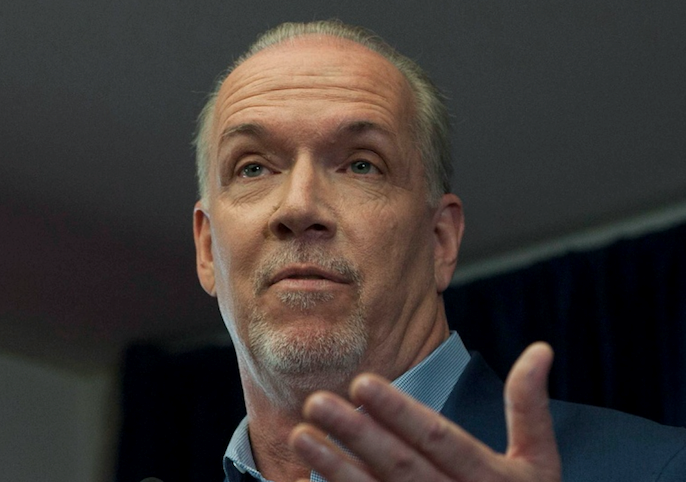 It’s amazing what a difference a wild card can make in a card game. B.C., Alberta and Ottawa have been playing their hands over the Trans Mountain pipeline-expansion project for the past few years, to the point of stalemate. But runaway gas prices in metro B.C. over the past few months make it a whole new game.
It’s amazing what a difference a wild card can make in a card game. B.C., Alberta and Ottawa have been playing their hands over the Trans Mountain pipeline-expansion project for the past few years, to the point of stalemate. But runaway gas prices in metro B.C. over the past few months make it a whole new game.
It looks as if $1.70 a litre is the price point at which a political annoyance can no longer be ignored.
That pump price is holding for the moment in the Lower Mainland, and Premier John Horgan is looking increasingly desperate when it comes to doing something about it.
The long-running pipeline argument is about diluted bitumen, a form of crude oil. But the pump price of refined gasoline is a major new element for the B.C. government to contend with, and it could become a key factor in the pipeline expansion.
Facing increasing pressure to do something, Horgan has been camped lately on supply and demand as the main reason for the roughly 40-cents-a-litre price jump since winter.
Meaning: “Don’t blame me or the carbon tax, it’s out of my hands.”
But that also implicitly means more pipeline capacity is the only solution to curb price hikes.
After Alberta Premier Jason Kenney made good on his threat to get the “turn off the taps” bill ready for action, Horgan responded with a new angle.
He’s going to ask Prime Minister Justin Trudeau, who bought the existing line and the expansion project last year, to adjust the batches flowing through and get more gasoline to the coast. Horgan told reporters the federal government could direct more refined gasoline to replace the diluted bitumen, saying it would be in the national interest to see rational pricing in the Lower Mainland.
“I can’t rationalize the outrageous spike in prices here relative to other jurisdictions, beyond what I’ve said several times — the lack of supply.”
His message to Trudeau: “Get some gasoline into the pipeline so we can relieve the pressure. ”
Exactly the opposite has been happening lately — increased crude shipments are supplanting gasoline — which Horgan said contributes to the price increase.
His request is also completely counter to the thrust of the Alberta bill that gives that government full authority to adjust flows to drive pump prices in B.C. as it sees fit.
Kenney proclaimed the bill as law as promised, although it isn’t formally in effect yet. He made a courtesy call to Horgan, and the two had a friendly talk, by Horgan’s account.
But the threat is now hanging over B.C.
The two also have a specific disagreement within the pipeline battle to sort out.
Kenney said: “Unfortunately, since coming into office … the B.C. government has opposed the expansion project every step of the way, most recently in the B.C. Court of Appeal.”
But Horgan said his government is issuing all required permits as needed and hasn’t thwarted the project.
The court action is a reference question in which B.C. is asking if it has jurisdiction to restrict crude-oil movements in B.C. while it studies safety measures.
That’s one of several oddities in play — B.C. wants exactly the same authority that Alberta has just granted itself to control oil movements, even as it claims Alberta’s move is flagrantly unconstitutional.
B.C. renewed its suit against the Alberta legislation soon after it was proclaimed.
Horgan said the difference is that B.C. is asserting jurisdiction over an environmental-protection issue, while Alberta is trying to impair trade.
B.C. would likely have to give something to get more gas, but Horgan didn’t want to negotiate publicly.
One potential would be dropping the passive resistance to the pipeline in return for a guaranteed share of gasoline and some reduction in crude bound for tankers.
Another oddity is that in all the projections for the twinning of the existing pipeline and increasing its capacity, there are no indications it would bring more gasoline to the coast, Horgan said.
It was budgeted to bring dilbit to the coast for export.
Nonetheless, Horgan said: “There’s an opportunity for the three governments to find a way forward.”
He noted that it’s not sustainable for Trudeau to head into an election with gas at $1.70 in the Lower Mainland.



